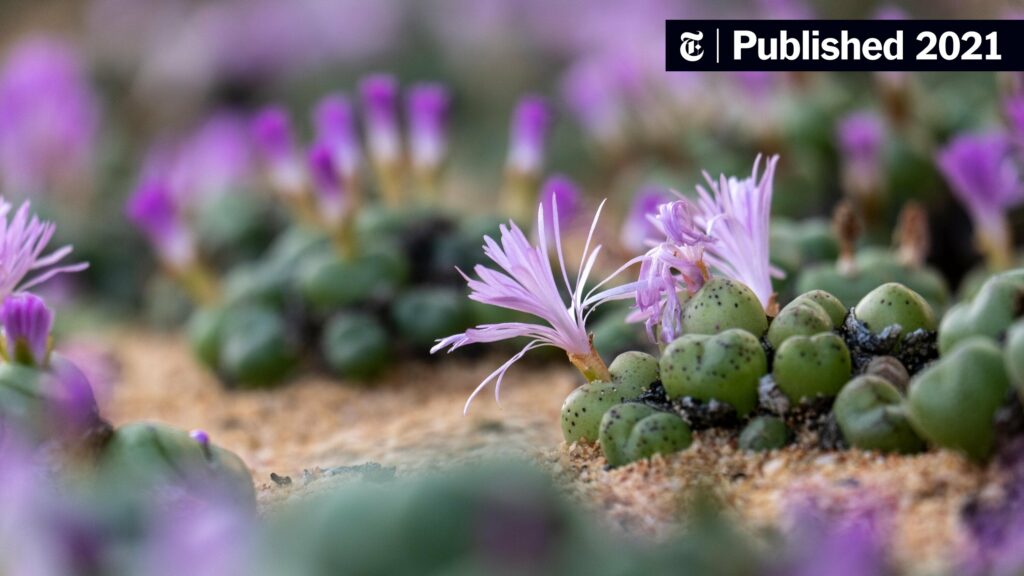South Africa’s Northern and Western Cape provinces are currently experiencing a concerning surge in rare succulent poaching. These unique and ecologically important plants, which play a vital role in the region’s biodiversity, are being targeted by illicit collectors for their high market value, posing a severe threat to the delicate ecosystems of the area.
The succulent-rich regions of South Africa are known for their remarkable plant diversity, boasting numerous species found nowhere else in the world. Succulents, with their unique ability to store water in their fleshy leaves and stems, have adapted to survive in arid environments, making them vital to the local ecosystem’s resilience.
However, the recent increase in succulent poaching has raised alarm among conservationists and authorities. Illegal collectors, driven by the lucrative international market demand, are uprooting and harvesting these rare plants, often smuggling them out of the country for sale to collectors and horticultural enthusiasts abroad.
Dr Carina Becker du Toit, a senior botanical scientist leading rescue operations for confiscated succulent plants in the Western Cape and Northern Cape says, “We have been getting between three and seven plant confiscation cases coming in every week, mostly from the Northern Cape – and the number of plants in each case can vary between 1,000 and 10,000 plants.”
The consequences of succulent poaching are far-reaching. The illegal removal of these plants disrupts their natural habitats, leading to ecosystem imbalances and threatening the survival of numerous species that rely on succulents for food and shelter. Additionally, the loss of these unique plants diminishes the aesthetic appeal and biodiversity of the regions affected.
Conservation organizations, government agencies, and local communities have joined forces to combat the poaching crisis. Increased surveillance, intensified law enforcement efforts, and community engagement initiatives are being implemented to raise awareness about the ecological importance of succulents and the devastating impact of illegal harvesting.
Efforts to curb the poaching spree are also focused on international cooperation. South African authorities are collaborating with counterparts in destination countries, sharing intelligence and working towards the dismantling of smuggling networks to disrupt the illicit trade of rare succulents.
The local communities living in and around succulent-rich areas are being mobilized as critical partners in conservation efforts. Educational programs, community-based monitoring, and sustainable livelihood initiatives are being implemented to encourage the protection of succulents and foster alternative income sources that do not harm the environment.
Authorities are also considering stricter regulations and penalties for succulent poaching offenses, aiming to deter potential perpetrators and send a strong message that the illegal trade will not be tolerated.
The current poaching spree serves as a reminder of the urgent need to protect South Africa’s succulent biodiversity. Preserving these unique plants requires a concerted effort from all stakeholders, including government, conservation organizations, local communities, and the public.
Efforts to combat succulent poaching must be accompanied by raising awareness about the importance of biodiversity conservation and sustainable practices. Public engagement and education are crucial to cultivating a sense of responsibility and ensuring the long-term survival of these remarkable plants and the ecosystems they inhabit.
By working together and implementing robust conservation measures, South Africa can safeguard its precious succulent heritage, protect the delicate balance of its ecosystems, and continue to showcase its natural beauty to the world.
